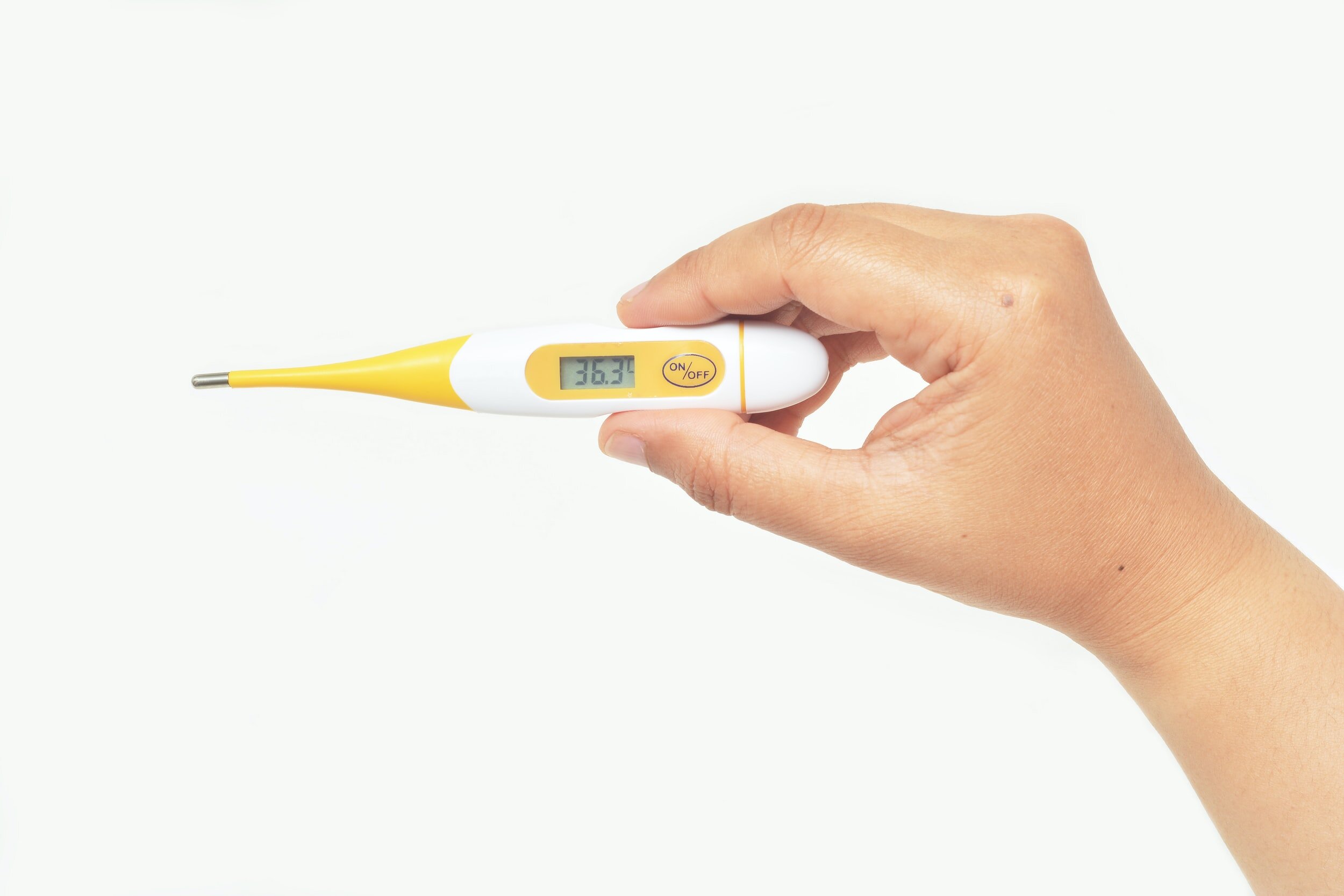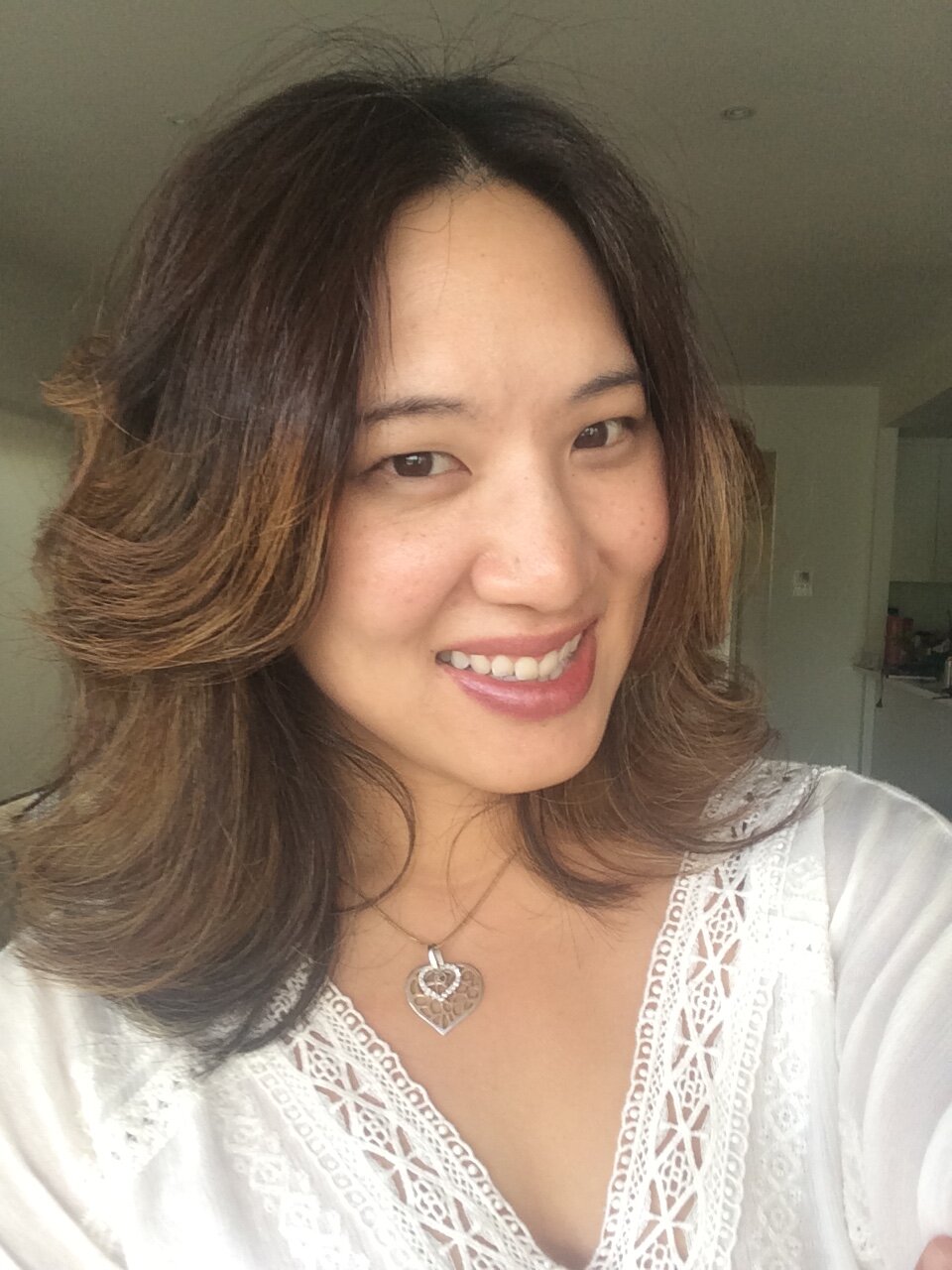Ways to boost your fertility: a natural approach
/“Why don’t you have children?”
“When are you having your next child?”
When you’re trying to conceive, it can be tough fielding questions like these. It can lead to feelings of inadquacy or failure, and can even take the fun out of being intimate.
As an Adelaide-based acupuncturist, I work a lot in women’s health and fertility - and I’m so happy to have helped hundreds of couples successfully fall pregnant.
But I know how hard it can be when you’re trying. Each week in my clinic, I hear thoughts and questions such as:
“It’s hard being invited to yet another baby shower. You start saying to yourself that it’s just not fair. They seem to get pregnant so easily. They didn’t even want children. And then you feel guilty for thinking these thoughts.”
“It’s such an emotional journey; with every period that comes, it’s the disappointment that comes with it. No one quite knows that feeling of disappointment, not even my partner.”
“Not many people, if any, know how hard this is. It’s not something we talk about often to people, even our close family and friends.”
“It’s taken the fun out of being intimate. I’m noticing that I’m getting moody with my partner. Is it all my fault? Is there something wrong with my body? Is it because I had an abortion when I was younger? Or because I was on the pill for so many years?”
“These IVF processes are so draining, hormonally and financially. I’m not sure how many more times I can do this.”
“Have I run out of eggs? Am I too old? Is it the sperm? Is it the stress? Am I drinking too much coffee?”
“The clock is ticking and I’m getting old.”
If you’re going through something similar, please know that you’re not alone. There is plenty you can do to help support your body when trying to conceive, including Fertility Acupuncture and a range of lifestyle and diet tweaks - I have outlined my top tips for you below.
What can I do to help my fertility chances?
For every person that comes for Fertility Acupuncture, these are aspects that I always discuss to help the body perform at maximal peak.
Sleep and fertility
The importance of sleep: it’s about quality and quantity. As a functioning adult, we need to have 7-9 hours of unbroken sleep. If we don’t achieve this, this alters the amount of hormone production in the body (potentially Luteinizing Hormone, the one that helps with ovulation, and Testosterone levels in men).
Hera are some tips to improve your sleep hygiene: ear plugs for noise, dark areas for lighting, routine and meditative techniques to help calm the mind. Aim to be in bed by 11pm and be asleep shortly thereafter. In Chinese Medicine, there’s an explanation why you may wake up at certain times during the night; if you wake up between 1-3am, (this is the liver peak processing time when the liver energies detoxify and de-stress), you may be highly stressed or an indication that it is unable to break down the toxins; 3-5am is lung energy time when potentially it’s processing emotions of sadness or grief. If you wake up consistently at these times, this may reflect what might be throwing out your circadian rhythm and sleep patterns.
Long term night shifts and rotating shifts are also not the ideal for our body and its natural circadian rhythm.
Read more about how much sleep is normal and tips for improved sleeping here.
Diet and fertility
What are you eating or drinking? Are you fasting or on a specific diet? Do you miss breakfast? The main elements of this area is that we have a well-balanced and regular diet (3 meals a day). Avoid overly fatty, sugary, and cold/raw foods (for example ice cream, icy drinks, sushi, raw salads). If we’re not eating nutritiously, how do we expect our bodies to function at its peak potential? Think of our abdomen like a warm oven that needs to grow and nurture life.
We also need to maintain our fluid levels for hydration of our body and organs. Aim for 6 glasses of water a day (ideally limit caffeine and alcohol to a minimum). If we’re not drinking enough water, not only is our skin dry, but so are all our organs, including our uterus. There is decreased fluid and blood flow throughout the body as a result too.
Read more about drinking the right fluids and what amounts are ideal for you here.
Stress and fertility - physical and emotional
Physical over-exertion and under-exertion will either over or under stress your body and elicit different hormonal affects. Aim for regular movement and avoid over exercising, so you may limit strength training to maximum 3 times per week; also ensure you balance it with stretching and calming activities.
Another and often more important aspect which I find which has a huge play on our hormonal balance and thus fertility options is the emotional stress. There’s evidence that stress via the hypothalamic–pituitary–adrenal circuit (HPA axis) causes a physiological response in the brain, gonads and embryonic tissue (Ko and Kim, 2018). Do you have a tendency to repress or keep feelings in? Are there frustrations, sadness, anger, grief of a loss or fear? Are there things you keep bottIed in and you don’t even tell your partner?
I find that repressed feelings ALWAYS find a way to manifest themselves physically, if left undealt or unresolved long enough. They can surface as insomnia, dermatological conditions, headaches, increased body pain or altered menstrual cycles.
It is perfectly normal to have emotions (we are not robots!), but ensure you acknowledge these feelings and sit in them. Do things to allow movement of these emotions: journaling, talking to a close trusted source, going for that walk on the beach or even putting on a soppy movie and have a good cry. It’s so easy to say “don’t stress”, but it really is a conscious and continued effort to be aware and prevent this from building up.
Don’t underestimate the power of stress and its effects on the body.
Have a read of my stress- less tips here, or how to practice mindfulness tips here.
How do you know if you’re ovulating and when?
It’s all about timing, right? If you don’t know when you’re ovulating, then how can you be sure that you’re trying to conceive within that fertile window?
Some women use apps, some know by some regular body symptoms, some use the chemist bought ovulation test kits, some do basal temperature charting and others are guided by blood tests.
Apps
Did you know that apps are very inaccurate and only go by the textbook “middle” of your cycle. Especially if they don’t allow you to enter your baseline data (average menstrual cycle and period duration), as otherwise they goes by the average of a 28-day menstrual cycle with textbook ovulation of the 14th day. I’ve found that most of us are actually not textbook!
Body symptoms
Some women are guided by a change in vaginal secretions. You may notice an increase in egg-white consistency or even get some subtle twinges around the ovaries.
Ovulation test kits
These can be slightly inconsistent when you are at you’re most fertile but do boast a high accuracy rate. However they can get costly after a while of trying.
Basal temperature charting
Ensure you are taking this with your thermometer first thing in the morning in your mouth, BEFORE getting out of bed and ideally at a daily regular time. You can then document this in your app or manually on a chart and this can be a great way of mapping your menstrual cycle to be aware of when you ovulate. Ovulation will cause your temp to rise about .3 to .5 in degree Celsius and will peak on your chart. Regular mapping of your months will give a good idea as to when you ovulate accurately. It can also give a lot of information to your Acupuncturist about the state of your general health and what might need to be targeted to assist.
Be aware though, some ladies still get a period however do no ovulate (there can be certain medical conditions that attribute to this). This is when blood tests can be helpful. These are usually organised by your medical doctor in your luteal phase ie second half of menstrual cycle (usually around day 21) to test for progesterone levels. This will indicate if you have actually ovulated that cycle or not.
I encourage women to do a combination of the above techniques to get the most accurate view to your ovulation window.
What if I have endometriosis, adenomyosis, fibroids and/or PCOS?
All the above factors also apply to you. You may even find that by addressing the above, your symptoms with these may change, and thus potentially helping with your fertility options.
What can men do for fertility?
All of the above aspects apply exactly to men as well!
Unfortunately the public emphasis is highly on women and their fertility health, but guess what: it takes 2 to tango!
Did you know that in the last 30+ years, the sperm quality has decreased dramatically? The reference ranges for Australian standards have also changed drastically in this period (in total count, morphology and motility of sperm). For example, before the year 2000, the reference range of morphology (such as normal head, tails and forms) used to be approximately 30% normal; from 2015 onwards it has been 4%. Before year 2000, motility levels (sperm’s forward movement) were 75%; now it’s 40% (Mishra et al, 2017). That is, now the so called “normal” reference ranges mean that only 40% of the total sperm are moving forward and only 4% of your ejaculated sperm are normal in shape. Did I say 4%… Yes! No wonder the chances of getting pregnant each month are so low!
Why has there been such a decline in sperm quality? Most research points towards stress (yes, our good old friend), smoking, alcohol, recreational drugs, testosterone use, obesity, environmental or occupational hazards (such as exposure to pesticides or heavy metals), and lifestyle factors (laptops, wifi phone in pockets, bike riding - which all potentially overheat the testes) (Levine et al, 2017).
The good news is that by changing a lot of these lifestyle factors, the sperm quality will improve quite dramatically within a few months.
A referral for a sperm analysis by your fertility specialist or GP is the first point of call for men. It’s a quick and easy way to find out the health of your sperm (ideally sperm needs to be tested within the hour and done preferably on site) and remember that the ‘normal’ reference ranges really aren’t that ‘normal’.
Acupuncture therapy
Traditional acupuncture has been used for thousands of years. It is based on traditional Chinese medicine philosophies of encouraging a steady flow of blood, fluids and energy throughout the body. When this flow is altered, it may result in imbalance and ultimately manifests as conditions or disharmony. It is now a treatment option that health professionals may recommend as an adjunct therapy to fertility and IVF.
Where once there was a low level of evidence for the effectiveness of Acupuncture to support IVF, there is now a growing body of systematic reviews/ research and broad agreement by Chinese medicine practitioners and other health practitioners for the potential effectiveness of acupuncture therapy as an adjunct to IVF. Theories postulated include assistance via increasing blood flow to the uterus, assisting with reducing stress and anxiety associated, and releasing neurotransmitters to alter hormone adaptations (Ko and Kim, 2018; Xie et al, 2019; Yun et al, 2019). A systematic review by Kusama et al (2019) conclude a positive influence with electro-acupuncture enhancing mature oocytes and fertility rates with IVF; however their sample size was very small (n=24) and thus further future high quality research needs to be conducted to draw any confirmatory conclusions.
Assessments at the clinic here will include a thorough review of your current health (please bring all relevant blood tests, semen analysis, scans), and may include basal temperature charting, recommendations of Chinese Medicine, traditional Chinese Acupuncture and its modalities, and cupping. We also work together with your doctors, and fertility specialists to aim to get the best result for you.
If you’re interested in booking an individualised assessment to help your fertility health, Dr Karen Chan (Acu) and Dr Voula Tep (Acu) are available for consult.
Got any questions? Feel free to comment below or contact us for further information.
Dr Karen Chan (Acu) is the chief Acupuncturist, Physiotherapist and Director of Prospect Physiotherapy and Health Plus Clinic in Adelaide. The clinic is an integrative clinic to address all your health and wellbeing with a holistic approach, inclusive of traditional Chinese medicine, physiotherapy, remedial massage therapy, dietetics and nutrition, podiatry, pilates, yoga and mindfulness. Karen is also an associate lecturer at Endeavour College of Natural Health in Acupuncture and has a keen interest in fertility and stress management.
Associated resources:
Ko, J. H., & Kim, S. N. (2018). A literature review of women's sex hormone changes by acupuncture treatment: Analysis of human and animal studies. Evidence-based complementary and alternative medicine : 3752723. https://doi.org/10.1155/2018/3752723
Kusuma, A. C., Oktari, N., Mihardja, H., Srilestari, A., Simadibrata, C. L., Hestiantoro, A., Wiweko, B., & Muna, N. (2019). Electroacupuncture enhances number of mature oocytes and fertility rates for In Vitro Fertilization. Medical acupuncture, 31(5), 289–297. https://doi.org/10.1089/acu.2019.1368
Levine, H., Jørgensen, N., Martino-Andrade, A., Mendiola, J., Weksler-Derri, D., Mindlis, I., Pinotti, R., & Swan, S. H. (2017). Temporal trends in sperm count: a systematic review and meta-regression analysis. Human reproduction update, 23(6), 646–659. https://doi.org/10.1093/humupd/dmx022
Mishra, P., Negi, M., Srivastava, M., Singh, K., & Rajender, S. (2018). Decline in seminal quality in Indian men over the last 37 years. Reproductive biology and endocrinology : RB&E, 16(1), 103. https://doi.org/10.1186/s12958-018-0425-z
Sengupta, P., Dutta, S., & Krajewska-Kulak, E. (2017). The disappearing sperms: Analysis of reports published between 1980 and 2015. American journal of men's health, 11(4), 1279–1304. https://doi.org/10.1177/1557988316643383
Xie, Z. Y., Peng, Z. H., Yao, B., Chen, L., Mu, Y. Y., Cheng, J., Li, Q., Luo, X., Yang, P. Y., & Xia, Y. B. (2019). The effects of acupuncture on pregnancy outcomes of in vitro fertilization: a systematic review and meta-analysis. BMC complementary and alternative medicine, 19(1), 131. https://doi.org/10.1186/s12906-019-2523-7
Yun, L., Liqun, W., Shuqi, Y., Chunxiao, W., Liming, L., & Wei, Y. (2019). Acupuncture for infertile women without undergoing assisted reproductive techniques (ART): A systematic review and meta-analysis. Medicine, 98(29), e16463. https://doi.org/10.1097/MD.0000000000016463











